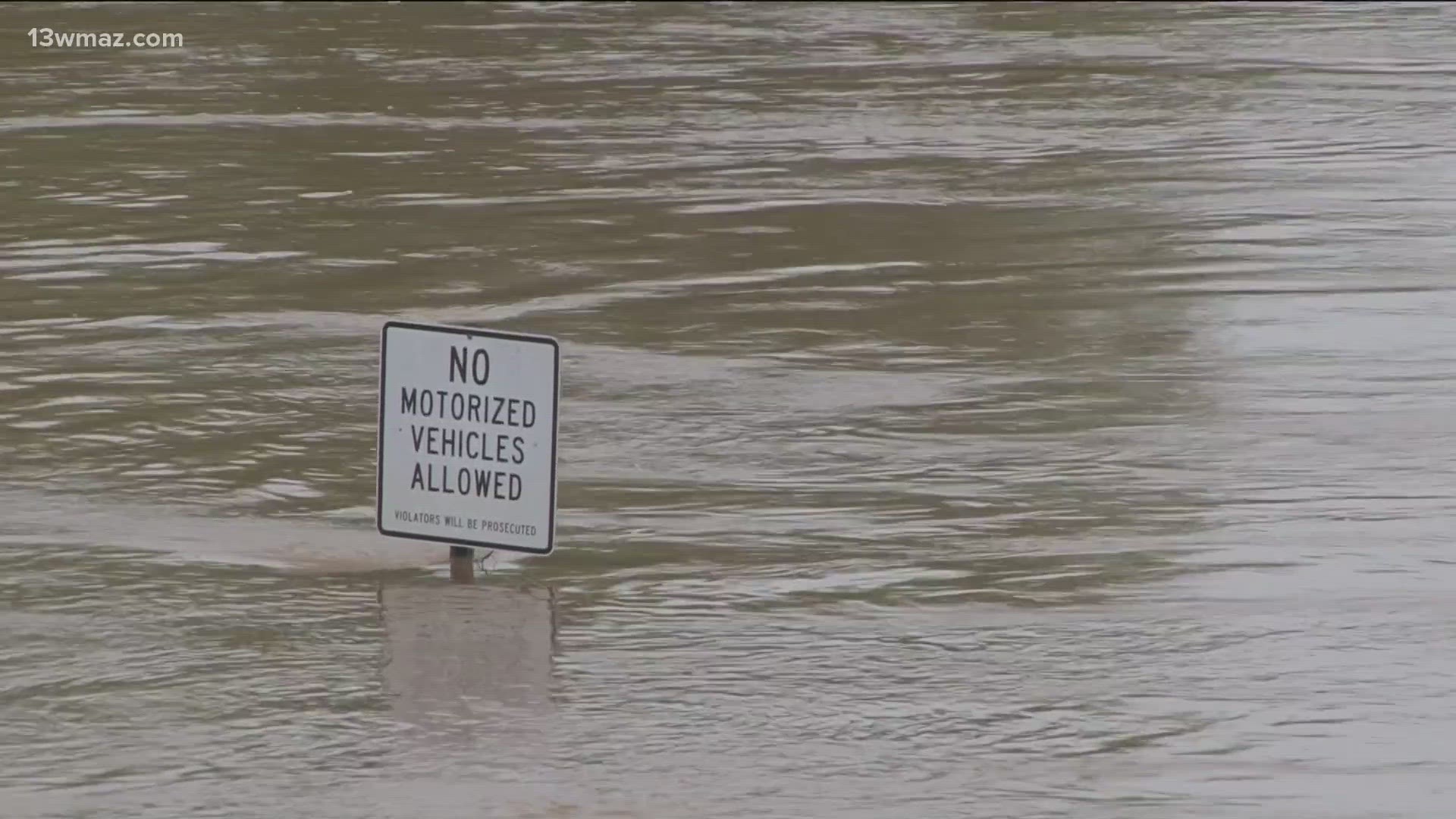MACON, Ga. — The Ocmulgee River crested Tuesday morning at 27.78 feet, it's seventh-highest crest in reported history, according to the National Weather Service.
With all the water comes a lot of debris, the Georgia Department of Natural Resources warns.
"These water levels are dangerous right now," Game Warden Cpl. David Fisher said.
As water rushed past the Spring Street bridge in downtown Macon Tuesday afternoon, it was hard to miss the debris.
Pat Garrett noticed.
"The water's moving so quickly, it's pretty dangerous," she said.
Logs, trees, branches, soda cans, beer bottles and even a spare tire or two were caught up in the waves. The biggest item in the debris field was a 40-foot shipping container lodged against the Spring Street Bridge.
Garrett walks up and down Spring Street several times a day. She says it's hard to see the river walk underwater.
"All the work that just got done, it was so pretty and beautiful," she said. "Then [there's] the city equipment sitting right there underwater. It's pretty bad."
Even with debris and strong currents, Garrett says she's seen people trying to boat this week.
"A lot of city boats. And they were just zooming up and down. And a lot of personal boats," she said.
Fisher says nobody should be getting in the water. He says you can see debris for the most part, but currents present a hidden danger.
"When the river's at this level, there are currents. There are currents that you can see and currents that you can't see. That's what people need to understand that can really put themselves in danger," he said.
Fisher says much of the debris, like logs, can render a boat inoperable, or seriously injure a swimmer. He says there's also dangerous wildlife in the river, but you shouldn't have to worry much about it with the currents.
Even so, he says, the best way to avoid any potential danger is to just wait until the water goes down.

